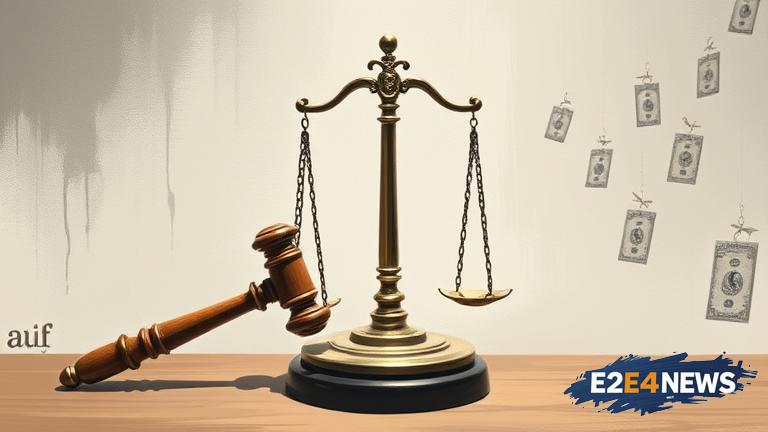The Protection of Children from Sexual Offences (POCSO) Act, 2012, is a landmark legislation aimed at protecting children from sexual abuse, sexual assault, and pornography. The Act provides for stringent punishments for offenders, including imprisonment and fines. However, the issue of bail in POCSO cases has been a subject of debate, with the judiciary exercising discretion in deciding whether to grant bail to accused persons. The POCSO Act does not provide for a blanket ban on bail, but rather leaves it to the discretion of the court to decide on a case-by-case basis. The court takes into account various factors, including the severity of the offence, the likelihood of the accused fleeing or tampering with evidence, and the potential impact on the victim and their family. In recent years, there have been several instances where courts have granted bail to accused persons in POCSO cases, sparking controversy and debate. Critics argue that granting bail in such cases can undermine the effectiveness of the POCSO Act and send a wrong message to society. On the other hand, proponents of bail argue that it is a fundamental right of the accused and that the court should exercise its discretion judiciously. The Supreme Court has also weighed in on the issue, emphasizing the need for a balanced approach that takes into account the rights of both the accused and the victim. In one notable judgment, the Court held that bail should not be granted as a matter of right, but rather as an exception, in cases where the accused is likely to flee or tamper with evidence. The Court also emphasized the need for the prosecution to present strong evidence to oppose bail, and for the court to carefully evaluate the evidence before making a decision. Despite these guidelines, the issue of bail in POCSO cases remains a contentious one, with many arguing that the judiciary needs to be more vigilant in exercising its discretion. The National Commission for Protection of Child Rights (NCPCR) has also expressed concerns over the grant of bail in POCSO cases, citing the potential impact on victims and their families. The Commission has recommended that the government consider amending the POCSO Act to provide for stricter bail conditions, including the requirement for the accused to deposit a surety or furnish a bond. The issue of bail in POCSO cases has also sparked a debate over the role of the judiciary in protecting the rights of victims. While some argue that the judiciary has a critical role to play in ensuring justice for victims, others argue that the court should not be seen as a substitute for the prosecution, which has the primary responsibility of presenting evidence and arguing the case. The POCSO Act has also been criticized for its lack of clarity on the issue of bail, with some arguing that the legislation should provide for more specific guidelines on when bail can be granted. The government has also been urged to provide more training and resources to judges and prosecutors to help them better understand the complexities of POCSO cases and make more informed decisions on bail. In conclusion, the issue of judicial discretion in deciding bail in POCSO cases is a complex and contentious one, with the judiciary walking a tightrope between protecting the rights of the accused and ensuring justice for victims of child sexual abuse. While there are no easy answers, it is clear that the judiciary needs to exercise its discretion judiciously, taking into account the severity of the offence, the likelihood of the accused fleeing or tampering with evidence, and the potential impact on the victim and their family. Ultimately, the goal should be to ensure that justice is served, while also protecting the rights of all parties involved. The POCSO Act has been a significant step forward in protecting children from sexual abuse, but more needs to be done to ensure that the legislation is effective in practice. This includes providing more training and resources to judges and prosecutors, as well as amending the legislation to provide for stricter bail conditions. By working together, we can ensure that the POCSO Act is used to its fullest potential to protect children from sexual abuse and bring perpetrators to justice.
